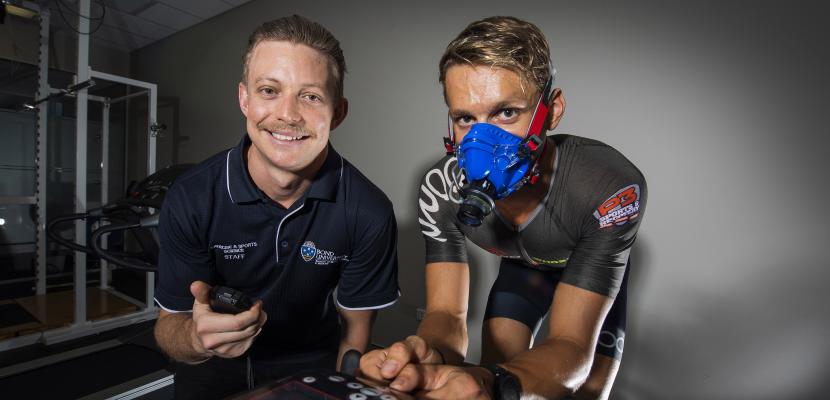
Amateur short-course triathletes who may never get the chance to represent their country can still help Australia go for gold at the Tokyo Olympics next year.
Bond University has put the call out for male and female triathletes to take part in a world-first study into the new Olympic event -- the mixed team relay triathlon -- set to be introduced at Tokyo 2020.
The intergender sprint event is set to be one of the highlights in Tokyo and researchers are hoping the research will give the Australian team the edge.
In return, local triathletes will get access to cutting-edge performance data.
“It’s almost impossible for club triathletes to get access to lab testing,” Bond University PhD candidate Robert Palmer said.
“Athletes in this study will get all the testing data in exchange for their time.
“There is a big gap in the literature currently. It covers the Olympic distance, there has been some work at sprint distance, but nothing in the teams relay distance.
“It is an Olympic event now and Australia will be one of the favourites -- we are Commonwealth Games champions – so it’s an exciting time for the sport.”
The mixed team relay consists of a team of four athletes -- two men and two women -- competing over a 300m swim, 8km cycle and 1.8km run.
The study will involve athletes being tested at the Bond Institute of Health and Sport lab at Robina to find their V02 max and thresholds for swimming, cycling and running.
This will allow them to accurately inform their training zones and phase planning.
“(The relay) will become a specialised event soon because it is so different. It’s like comparing a 200m sprinter against a 5km runner -- they are, or will become over time, totally different athletes,” Palmer said.
“We are trying to quantify what you should be able to do and how hard you should be able to go to do well at that distance.
“As it becomes more of an Olympic staple, and athletes begin specialising, we will hopefully create the foundation of information that they can base their training on.”
Gold Coast triathlete Travis Coleman has already been put to the test.
“Doing the testing was like eating a pack of Tim Tams, you get heaps excited for it but once you’re half way through, you have to dig deep and find your limits to finish,” Coleman said.
“It was a valuable take away and I can’t wait to get the data back and get deeper into training”
Gold Coast triathletes can find out more about getting involved by contacting Robert Palmer at [email protected]